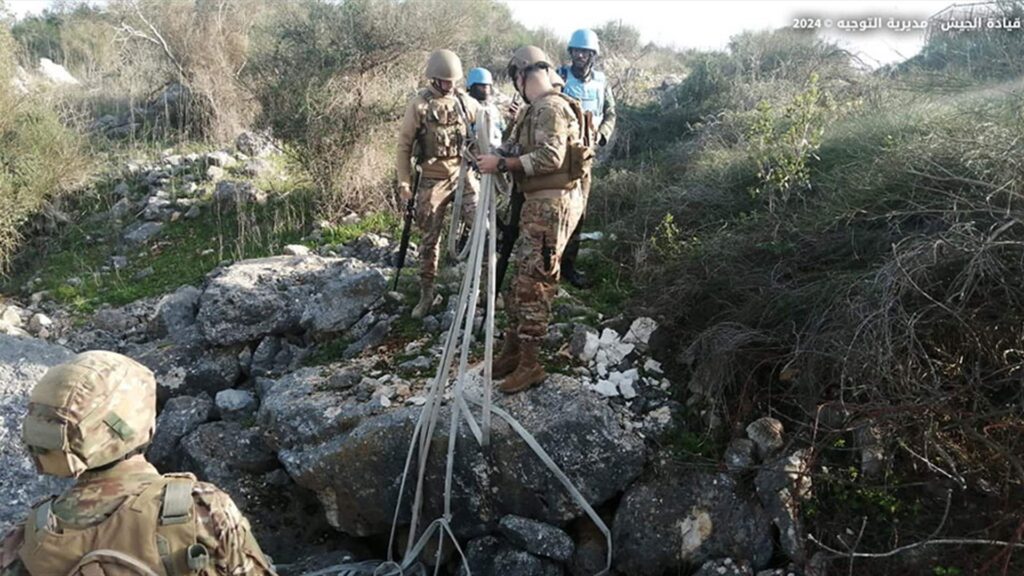On Monday, a joint Lebanese Army and UNIFIL patrol in the outskirts of the town of el-Labbouneh found three hoses used by Israeli forces to pump incendiary material into southern Lebanon.
While a specialized unit in the army worked on dismantling the hoses in the presence of UNIFIL members, they were exposed to Israeli fire. No casualties were caused during the operations.
Another joint patrol in the outskirts of the town of Aita al-Shaab found two similar hoses extended from the Tel el-Raheb center in occupied Palestine. A specialized unit in the army also worked on dismantling both.
A statement by the Lebanese Army on X, previously Twitter, highlighted the army’s continued efforts to take the necessary measures to monitor the situation at the southern border in coordination with UNIFIL.
Burning Land as a Strategy
The use of incendiary weapons has been a main tactic for Israeli forces during the last three months of conflict.
Since the first few days of escalation, Israeli forces have repeatedly used the internationally prohibited white phosphorus on South Lebanon and Palestinian territories, a substance known for its mass incendiary impacts.
Between November and December 2023, estimations indicated that Israeli attacks, including those using white phosphorus, have burned at least 47,000 olive trees and 462 hectares of land and have affected at least 53 villages along the border. The numbers are expected to have grown significantly since.
Agricultural activities are a main source of income and livelihood for many of Lebanon’s southern citizens. The tactics used by Israeli forces in South Lebanon are similar to those used in Gaza in terms of targeting large swathes of civilian areas.
Violations of Sovereignty
With talks of implementing UN Resolution 1701 and attempts by Western governments to de-escalate issues in Lebanon, Israeli forces’ continued breaches of Lebanese sovereignty have hitherto gone unpunished.
Recurrent reconnaissance flights, bombings of residential areas, burning of agricultural lands, and intentional targeting of civilians including journalists are some of the countless examples of violations of Lebanese sovereignty.
With Israel facing legal action at the International Court of Justice (ICJ) following an application by South Africa addressing the Israeli genocidal campaign in Gaza, the extension of hoses for incendiary material constitutes yet another violation of international law committed by Israeli forces.
